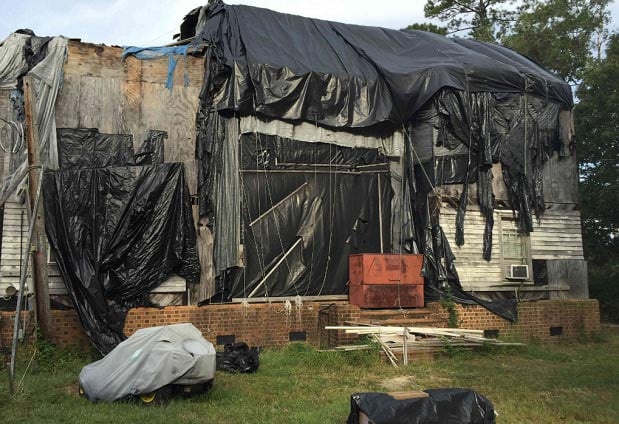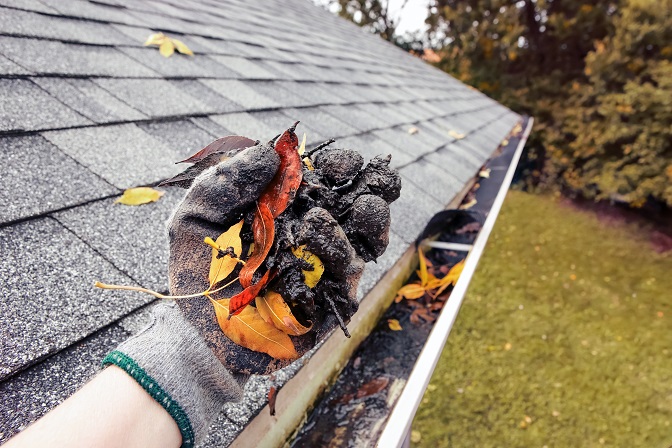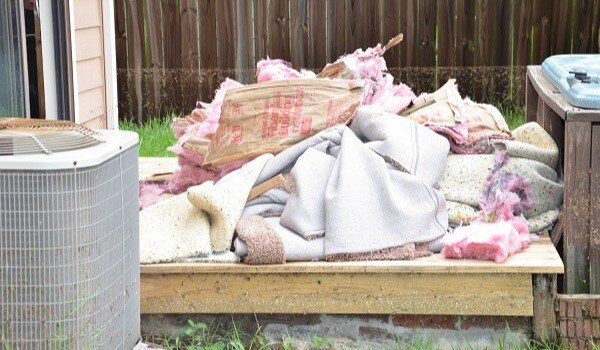
Home flooding in Virginia
Virginia's severe weather can pack a punch from the home damage duo: wind and water. Unexpected heavy rain can cause heavy trees to fall, your home's gutter system to fail, and your basement to flood. You can take measures to prevent flooding, but it's important to know what to do if the worst happens. Home insurance does not typically cover flood damage, but you may be able to file a flood insurance claim to help cover the cost of damage if you have a separate flood insurance policy.
When your basement floods, follow these six steps:
1. Make sure it is safe to enter your basement!
The first step is to make sure it is safe to go into your basement. If there are outlets or appliances underwater, there may be a dangerous electrical current. If you can, locate your main electrical service panel and shut off the electricity to your house. If your circuit breaker is in the basement contact your utility company or an electrician and stay out of your basement until they tell you it's safe.
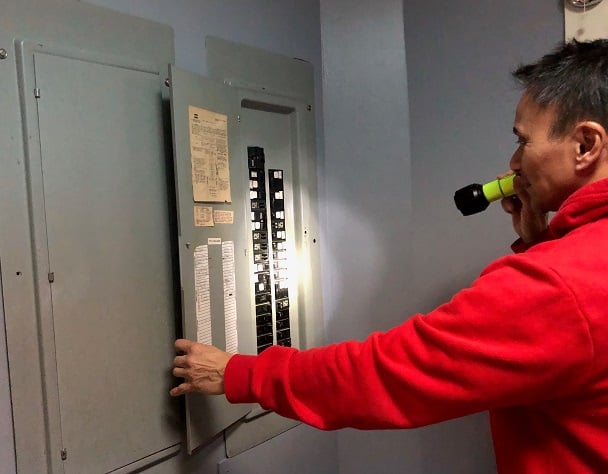
If you have gas appliances located in your basement, it is also a good idea to turn off the flow of natural gas or propane. If a gas-powered hot water heater or furnace is affected by floodwater, the pilot light may be extinguished, and the gas source should be shut off.
The flood water in your basement may also be contaminated. If you detect a sewage odor, stay out of your basement and consult a professional. Remove hazardous products such as painting chemicals, noxious cleaning products, fertilizers, insecticides, and other pesticides.
Check for signs of structural damage. Once your basement is clear of safety concerns, wear masks, gloves, and goggles to protect yourself while you clean up. Wear long sleeves, sturdy shoes, or waterproof boots, and take your time.
2. Locate the source of the flooding
Try to determine how the water is coming into your basement and stop it as soon as possible. There are several common sources of basement flooding:
- Appliances: The failure of dishwashers, washing machines, hot water heaters, and sump pumps can be responsible for leaking water in your home. You should immediately turn the water off to the appliance in question or turn off your home's water. Have a backup battery for your sump pump in case there is a power outage during severe weather. Even condensation lines from your furnace's A/C system can get clogged and cause costly water damage. Have annual maintenance scheduled on your home air system. Home insurance can cover this type of damage.
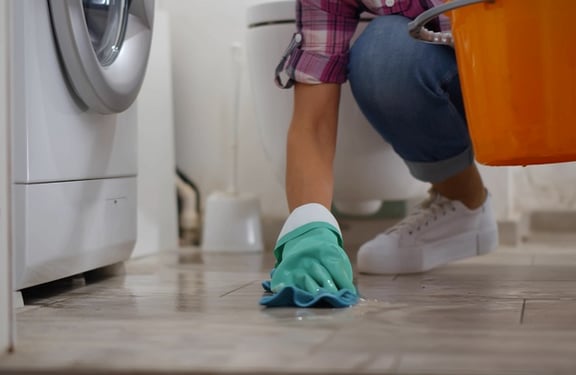
- Plumbing: Toilets and plumbing pipes can cause significant water damage in your home. Do what you can to prevent pipes from freezing and bursting in the coldest winter months. If your plumbing is leaking, turn off the water source to the leaking pipe or the water main and call a plumber. Home insurance can also cover this type of damage.
- Floors or windows: Heavy rains in a short period of time can overwhelm your home when it causes water tables to rise quickly. In that case, use towels to absorb water until the weather ends and water subsides.
- Floor drain: A backup at your floor drain could be a failure of your sump pump or indicate the need for one due to a yard drainage issue. An odor of waste indicates a backup in your sewer line. In that case, call a plumber to determine if it's your responsibility or the municipal city sewer system beyond your home's tie-in.
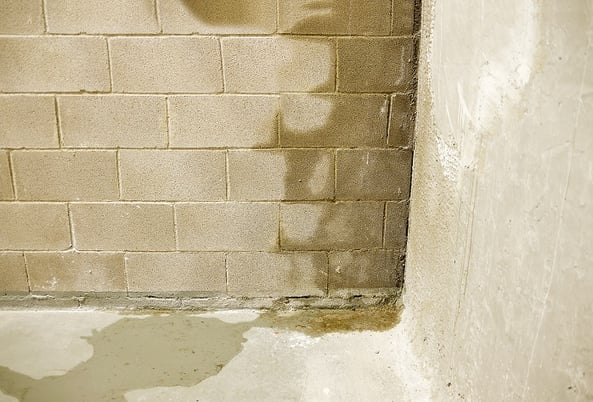
- Walls or foundation: Severe weather and heavy rain can also cause water to leak through cracks in your floor or walls. Generally, this will subside as the rain does and as water tables lower, but it also could indicate a problem with your foundation. Call a foundation specialist to eliminate a more serious issue. You may need an alternative drainage system or sump pump if you don't have one already. Also, be sure your gutters are functioning well and rainwater is directed well away from your foundation with downspout extensions.
3. Remove water
Start removing the flood water from your basement as soon as possible. Move dry belongings to higher ground. If the flooding is major or the water is contaminated, have a professional flood remediator take care of the cleanup. Otherwise, rent or borrow a wet vac and dehumidifier. Fans are helpful too! Be sure to keep any cords elevated above the water to prevent electric shock.
Mildew and mold develop within 24-48 hours of water exposure so removing moisture quickly will prevent home mold growth. Once the standing water is removed, run dehumidifiers 6 to 8 inches away from walls for good circulation and utilize fans to increase circulation. Virginia's humidity won't help so it's best to run your air conditioning constantly and change or clean the air filters frequently to ensure system efficiency.
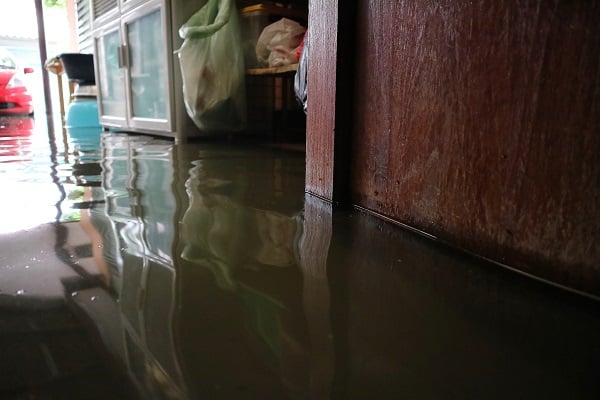
4. Remove unsalvageable items
Discard cardboard boxes and other waterlogged items. Household materials and items like insulation, carpeting, and upholstered furniture will most likely be water damaged beyond saving.
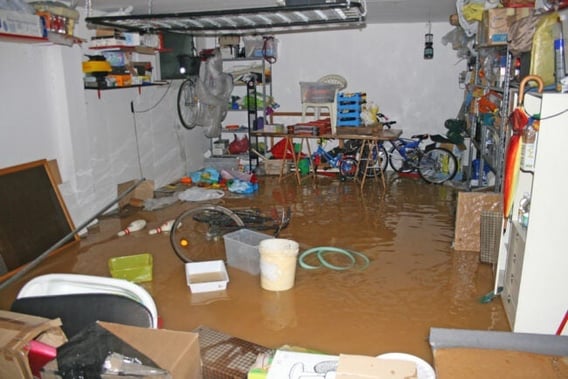
5. Dry and clean salvageable items
Clean vinyl, tile, linoleum, and other hard surfaces with a solution of one cup of bleach to one gallon of water. Be sure to ventilate the space well while cleaning. Indoor gentle air-drying is best for valuable belongings. Avoid scrubbing fragile objects which can damage them and rub in the dirt. Instead, loosen dirt and debris with soft brushes and cloths. Focus on items that have historical, monetary, or sentimental value to you first.
Rinse photographs carefully in clean water and air-dry them on a plastic screen or towel. You can also hang them with plastic clothespins. Don't let the image come into contact with other surfaces as it dries.
Damp objects and items you can not deal with immediately should be put in open, unsealed boxes. Freeze photos, papers, books, and textiles if you can't get them dry within 48 hours to stop mildew growth and deterioration until you can attend to them.
6. Check your home's gutter system
Once your basement is operational again, it's crucial to inspect your home's gutters to ensure they are prepared for upcoming weather conditions. Clogged or malfunctioning gutters can lead to flooding. Indications that your gutters require cleaning or repair include animal nests, plant growth, sagging, or stagnant water. You can examine your gutters using gloves and a secure ladder, or you can hire professionals. For safety and expertise, we suggest opting for professional assistance.
Learn about your insurance options with Northern Neck Insurance
Don’t wait for a flooded basement to tell you to get insurance coverage - find out what policy is right for you and your family to keep your home safe and dry!
THE NORTHERN NECK INSURANCE INTEGRITY PROMISE — We pledge to provide straight talk and good counsel from our NNINS Virginia insurance experts through our blog. While we hope you find this to be a helpful source of information, it does not replace the guidance of a licensed insurance professional, nor does it modify the terms of your Northern Neck Insurance policy in any way. All insurance products are governed by the terms in the applicable insurance policy.

